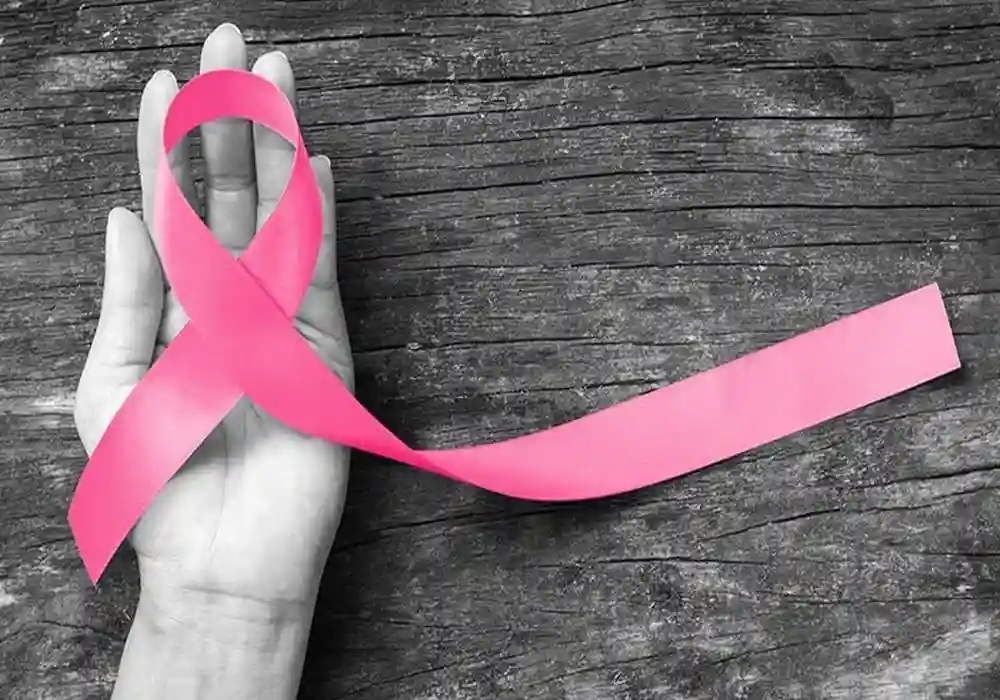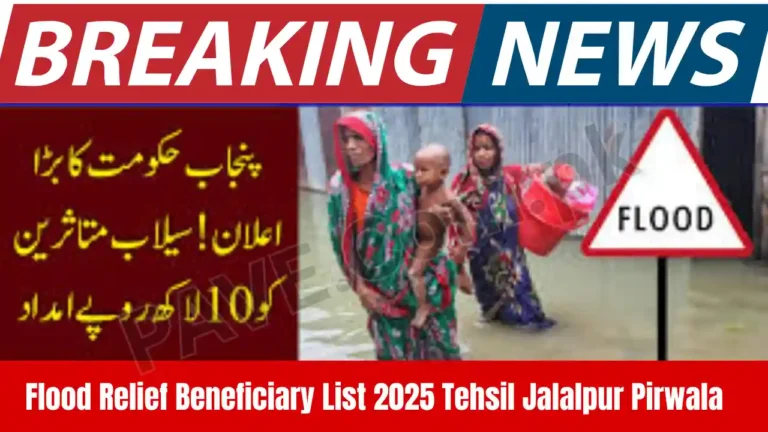Breast Cancer Screening Facility in Pakistan – Govt Urged
Pakistan’s healthcare community has made an urgent appeal to the government to establish a Breast Cancer Screening Facility in Pakistan at the national level, calling it an essential step toward saving thousands of women’s lives each year. Experts, health professionals, and social activists are warning that breast cancer has silently become one of the country’s most dangerous public health threats, with over 92,000 new cases emerging annually and many going undiagnosed due to limited access to screening.
Speaking at a seminar organized by the National Forum for Environment & Health (NFEH) in connection with Breast Cancer Awareness Month, doctors and civil society representatives stressed that breast cancer awareness in Pakistan must now be matched with real, government-backed medical infrastructure. They said that while awareness drives are important, early detection and treatment remain nearly impossible for millions of women, particularly in rural areas where there are few or no diagnostic facilities.
The Urgent Need for a Nationwide Screening Network
Experts at the seminar emphasized that Pakistan is facing one of the highest breast cancer burdens in Asia, but its medical system lacks the capacity to detect or treat cases at an early stage. Many patients only reach hospitals once the disease has spread, making recovery far more difficult. The creation of a Breast Cancer Screening Facility in Pakistan could change this reality by offering affordable or free mammography services through government hospitals and mobile health units.
Participants urged authorities to build screening centers in every district and to connect them with major oncology units in public hospitals. They also called for greater involvement of private hospitals, charitable trusts, and NGOs under the umbrella of government health programs 2025, which are expected to focus on preventive medicine and community-based healthcare reforms.
Doctors argued that the government’s existing health framework has primarily focused on infectious diseases, while non-communicable diseases like cancer continue to be underfunded and underreported. They warned that without immediate intervention, the mortality rate will remain unacceptably high.
Calls for Accurate Data and National Cancer Registry
Public health specialists said Pakistan still lacks a comprehensive national database on cancer patients, making it difficult to understand the full scale of the crisis. They demanded the creation of a national cancer registry under the Ministry of Health to collect and analyze data from all provinces.
They pointed out that official statistics underestimate the number of cases because most rural women have no access to early cancer detection Pakistan, and deaths are often not recorded as cancer-related. A standardized reporting mechanism, they said, would not only improve transparency but also help in planning treatment and funding allocations.
Doctors further proposed that every major public hospital should be equipped with mammography machines, trained radiologists, and female technicians. Such steps would bring Pakistan closer to a modern, integrated health system that focuses on prevention rather than late-stage treatment.
Read More: Today Gold Rate in Pakistan 20 October 2025
Experts Highlight the Human Side of the Crisis
Dr. Sara Arif, Head of Surgery at Memon Medical Institute, explained that the numbers being reported are “just the tip of the iceberg.” Many women in small towns and villages never reach hospitals due to distance, social stigma, or lack of financial means. She said that while breast cancer awareness in Pakistan has improved slightly through social media and NGO-led efforts, awareness alone cannot save lives without affordable access to mammograms and timely treatment.
She also revealed that younger women are increasingly being diagnosed with breast cancer, challenging the outdated perception that it primarily affects older women. “We are now seeing women in their 30s and even late 20s being diagnosed,” she said. “Self-examination and annual check-ups should become as common as routine dental visits.”
Adding to this, Dr. Sadaf Hafeez of Salim Habib University emphasized the need to integrate mental health support into cancer care. She said emotional distress and depression are common among patients, and proper counseling is just as important as medical treatment.
Preventive Health Through Diet and Lifestyle
Lifestyle changes can also play a key role in reducing cancer risk, experts said. Herbal and nutrition specialist Dr. Bilquis Sheikh encouraged women to eat fresh, unprocessed foods, maintain physical fitness, and avoid smoking. According to her, nutrition and regular exercise can strengthen the body’s immune system, making it more resistant to cancer.
Ruth Zia, an educator in nursing sciences, highlighted how the women health screening initiative can become more effective if paired with health education programs that teach young women about the benefits of self-care and early testing. She noted that nurses, midwives, and lady health workers can act as vital messengers in rural communities where awareness remains low.
The Role of Family Support and Breaking Social Stigma
A powerful message was shared by journalist and breast cancer survivor Afia Salam, who spoke about the psychological barriers that prevent many women from seeking early treatment. “Fear and silence are the biggest killers,” she said. “When families treat breast cancer as a private shame instead of a medical condition, women delay getting help until it’s too late.”
She urged the government and media to promote open discussions about women’s health. Awareness campaigns should use relatable language and real stories to normalize conversations about breast cancer. Her comments resonated with the audience, many of whom agreed that stigma remains a significant barrier to implementing a successful Breast Cancer Screening Facility in Pakistan.
Shakeel Khan, representing the Arts Council of Pakistan, also spoke about the importance of morale and emotional support. He explained that families who stand by patients during their treatment journey can greatly improve recovery rates.
Sindh’s Model and the Need for Federal Coordination
In his message for Breast Cancer Awareness Month, Sindh Chief Minister Murad Ali Shah highlighted the provincial government’s steps to provide Pakistan medical facilities for cancer treatment. He mentioned that free mammography units and diagnostic services are now available at Jinnah Postgraduate Medical Centre (JPMC) and Dr. Ruth Pfau Civil Hospital Karachi.
However, he acknowledged that these facilities alone are not enough. “We need a federal program that ensures every woman in every province has access to screening and care,” he said. His statement echoed the sentiments of the experts who believe that only a national network of screening centers can ensure early detection on a mass scale.
Murad Ali Shah added that new awareness drives will be launched in schools, universities, and workplaces to promote early diagnosis. “Protecting women’s health is essential to our country’s progress,” he said.
Read More: Daily Horoscope 21 October 2025 for All Zodiac Signs
NFEH’s Continued Advocacy for Women’s Health
Muhammad Naeem Qureshi, President of the National Forum for Environment & Health, reaffirmed his organization’s commitment to pushing for long-term policy reforms. He announced that NFEH will partner with hospitals, NGOs, and private companies to expand awareness campaigns and mobile clinics.
He said the forum’s next goal is to collaborate with local governments to deploy mobile diagnostic units that can travel to underserved areas, offering early cancer detection Pakistan through portable mammography and telemedicine technology.
“Thousands of women are dying because cancer is detected too late or treatment is too expensive,” he said. “The government must act with the same urgency it did for pandemic control — because this is a silent pandemic of its own.”
Global Examples Pakistan Can Learn From
Public health experts compared Pakistan’s current situation to countries such as Malaysia, Turkey, and the UAE, where national screening programs have drastically lowered cancer-related deaths. These nations invested heavily in women health screening initiative programs that combine community education, government funding, and public-private partnerships.
Specialists urged the Pakistani government to replicate these models under the framework of government health programs 2025, which are already being expanded to cover maternal and child healthcare. Integrating breast cancer screening into these initiatives would ensure sustainability and reduce administrative costs.
Building the Infrastructure for a Healthier Future
Medical professionals concluded that the establishment of a Breast Cancer Screening Facility in Pakistan must be more than a temporary campaign — it should become a permanent, fully funded national institution. Hospitals at the district and tehsil levels should be equipped with mammography units, trained oncologists, and laboratory support.
The speakers also proposed that Pakistan’s medical universities introduce specialized courses on oncology nursing and diagnostic imaging, ensuring a steady supply of trained professionals for these centers. Experts believe that even modest investments in early detection could save billions in treatment costs and improve overall survival rates for women nationwide.
Conclusion: Turning Awareness into Action
As Pakistan marks another Breast Cancer Awareness Month, the message from the country’s health experts is clear — awareness without access will not save lives. The call for a Breast Cancer Screening Facility in Pakistan is not just about machines or infrastructure; it’s about giving women the right to early detection, proper care, and a fighting chance at survival.
By embedding cancer screening within government health programs 2025, expanding Pakistan medical facilities for cancer, and promoting open dialogue around women’s health, the government can transform awareness into action.
For a country where so many women continue to suffer in silence, the creation of nationwide screening centers would be a defining moment — a sign that Pakistan is ready to prioritize the well-being of its women as a national responsibility.
As one doctor concluded at the seminar, “Every woman’s life matters. It’s time we treat breast cancer not as a personal tragedy, but as a collective challenge — and a call to action for all of Pakistan.”







